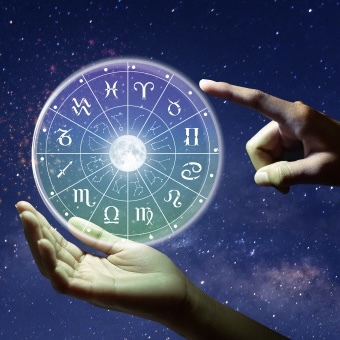Understanding Astrology: Your Questions Answered
New Year greetings, everyone!
I thought I’d start my blogging year this year by briefly – and hopefully clearly! – answering some of the most common questions I get asked when doing Astrology: Questions and Answers sessions. I really enjoy those events, having done them both on zoom and in person for various groups over the last couple of years.

The sessions seem to fall into two main categories: firstly, people with an open-minded interest in what astrology ‘beyond the sun signs’ might be, some of whom may just have begun to think about taking up astrological studies seriously. And secondly, folk who have been engaged in the study and/or practice of astrology for a while, as a result of which certain questions have become pressing for discussion/reflection.
Here are just a few of the topics I’ll be covering in the next few posts, just to give you a flavour:
In the simplest terms, what is astrology and how does it work? Do you believe in horoscopes?
What is an astrological birth chart? And, from more advanced students/practitioners: Is life controlled by fate or do you believe in free will? Can astrology predict my future? What keeps you engaged in its study?
I usually spend between an hour and an hour and a half in dialogue with the groups. My job is to be honest, clear, focused, keeping things as straightforward and jargon-free as possible. Invariably, the general response from those who are very new to astrology is this: “…I had no idea until now that astrology was so wide-ranging and complex. It’s fascinating!!…”
I also get asked advice from time to time on how to deal with astro-dismissers, ie those people (of whom I used to be one myself!!) who dismiss our great subject without ever having taken the trouble to investigate it beyond the occasional tabloid astro column. I don’t encounter this kind of ignorance very often.( Maybe they detect my MercurySaturnPluto conjunction vibe without even having to know any astrology!) But when I do, I ask very politely for how long they have actually studied the subject. They usually bluster, get shifty and can’t reply to this, upon which I say that I would be more than happy to discuss astrology with them: but only after they have gone away and studied the subject with a reputable teacher of school for a minimum of one year. This works for me.
So – shall we get started?
Here are the first questions – and my answers:

In the simplest terms, what is astrology and how does it work? Do you believe in horoscopes?
The word ‘astrology’ is derived from two Greek words ‘aster’ and ‘logos’ and means, in essence, the study of the stars. It is an ancient art and science going back at least 6000 years, to when the Chaldean astrologer/astronomer priests, “… when the human mind was still half asleep,…were standing on their watchtowers, scanning the stars”(from The Sleepwalkers by Arthur Koestler).
We humans from earliest times have needed to set our tiny individual and collective lives in the context of a Bigger Picture which provides a sense of meaning, and reassurance that we are not just butterflies pinned randomly to the board of Fate.
Astrology provides that Big Picture context, as do the world’s religions. However, it’s important to stress that astrology is NOT a belief system. Western astrology works by plotting the regular movements of the planets (we include Uranus, Neptune and Pluto in modern Western astrology) from observational points on Earth in relation to the 360 degree path of the Sun through the heavens, noting their positions in complex mathematical and astronomical tables which have been developed over many centuries.
In this way, energy patterns can be seen unfolding through space/time as the planets weave their intricate dance over seconds, minutes, hours, days, centuries, millennia. Astrologers have correspondingly observed those shifting, changing, repeating patterns, noticing how human life both collective and personal changes with them. The famous dictum “As above, so below” sums this up.
Astrologers then take a step beyond astronomy/maths by attaching meaning to what we see.
To be continued.. .
NEXT:
What is an astrological Birth Chart?
++++++

700 words© Anne Whitaker 2025



